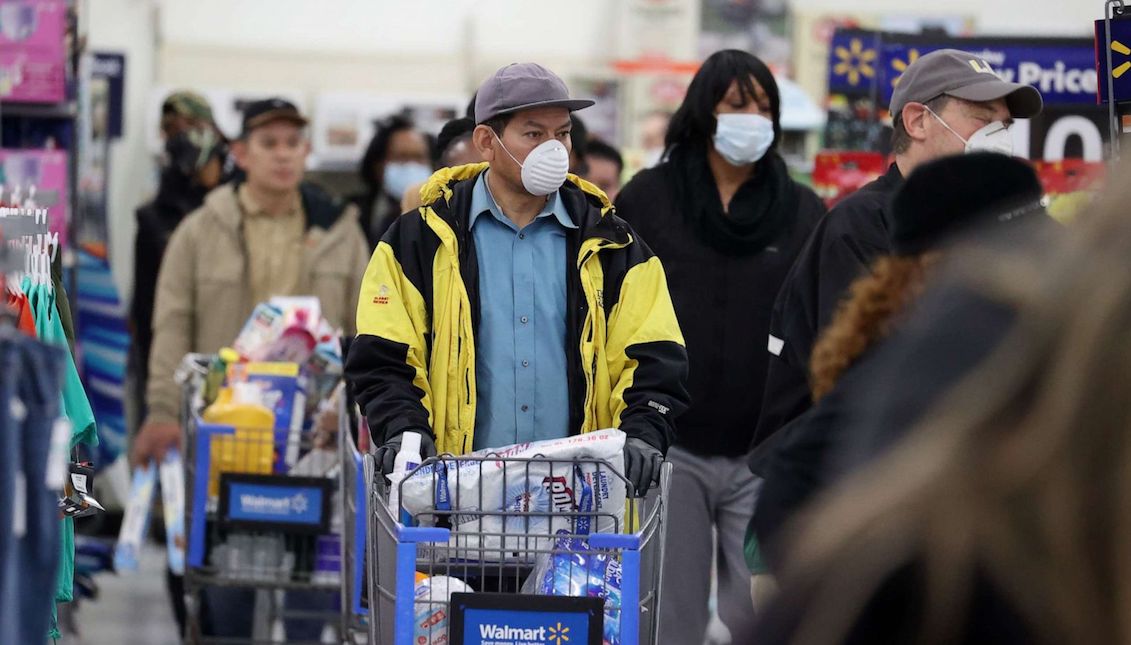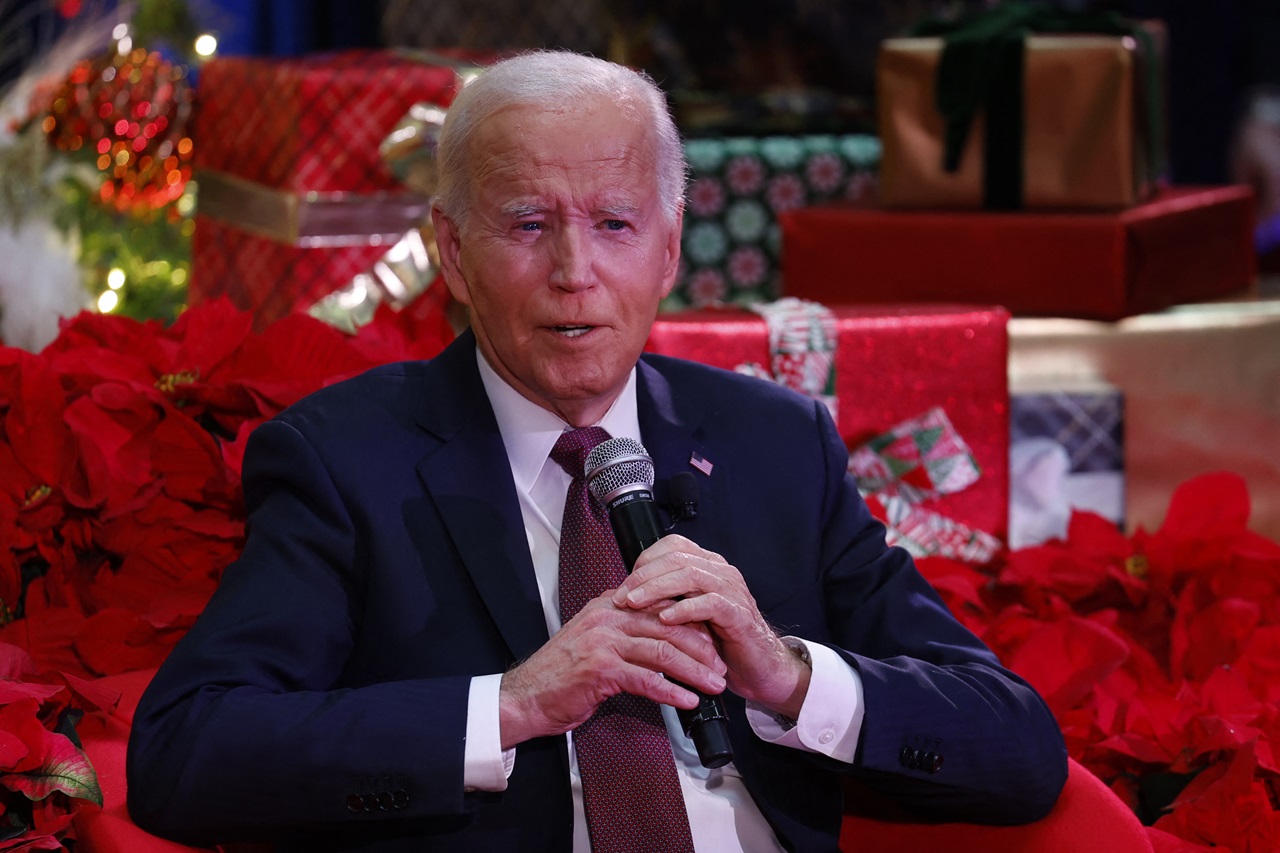
The Paradox of Economy and Coronavirus Protection Masks
While the United States is considered a global economic superpower, the production engine proved to be unprepared to protect its citizens in the face of a…
The most important public health crisis in recent decades seems to be making clear what is really wrong with government systems at the international level.
The lack of confidence in epidemiological specialists, as well as the alleged inability of governments to agree on a strategy to combat such an aggressive virus, has cost thousands of lives in just three months.
The United States, and according to 2019 figures, is considered the largest economy in the world, with a nominal GDP of 21.44 trillion dollars; that is, a quarter of the world economy, according to Nasdaq.
Together with China, Japan, Germany and India, this economic engine contributes 55% of the world's GDP.
These kinds of figures are just that: figures.
The so-called "developed economy" has always left cracks through which the true state of the social system can be seen; cracks that the COVID-19 crisis has only made bigger.
When it comes to saving lives, the American economic system has proved unable to translate its power into tangible solutions for its citizens.
According to The Guardian, there are 2,9 hospital beds for every 1,000 people in the country, less than other countries such as Turkmenistan (7,4), Mongolia (7,0), Argentina (5,0) and Libya (3,7).
And if we talk about doctors, in this "world power" there are 2,6 doctors per 1,000 inhabitants, "which places them behind Trinidad and Tobago (2,7), and Russia (4,0)," adds the media.
Following this line of thinking, America's Health Rankings showed in its 2018 report how the U.S. infant mortality rate is 5.9 deaths per 1,000 live births, which is far below most European countries and Chile.
In fact, in a ranking of 36 countries, the U.S. ranks 33rd.
The numbers of adult deaths are not much different and are further compounded by economic inequality gaps based on race.
According to figures from the Organization for Economic Co-operation and Development (OECD), economic inequality in the U.S. is one of the highest in the world –peaking in 2019, even though the unemployment rate remained at an all-time low.
Now the epicenter of the pandemic, hospitals across the country are reporting severe shortages of vital medical equipment –including test kits and thermometers– feeling unable to even protect the thousands of doctors who are on the front lines of the battle every day, NBC News reported.
According to an internal government surveillance report released Monday, medical centers and officials not only find themselves empty-handed when fighting the "invisible enemy;" they have also been faced with conflicting messages from a government that does not know where to start.
The report, based on interviews with administrators of 324 hospitals and hospital networks of various sizes, says that the equipment provided to hospitals by the federal government "falls far short of what is needed and is sometimes unusable or of poor quality.”
According to the report, one hospital received two shipments from the Federal Emergency Management Agency with protective equipment that had expired in 2010. Another hospital system received 1,000 masks from the federal and state governments, although it expected a much larger delivery, and "500 of the masks were for children and therefore unusable by adult personnel," according to the report. The elastic on the N95 masks from a state government reserve was "dry-rotted " and could not be used, it added.
RELATED CONTENT
Since the Coronavirus is an agent that is spread by droplets suspended in the air after a sneeze or cough by a contaminated person, doctors should protect themselves as much as possible and change masks and gloves frequently to avoid contagion.
What is really happening is that they must reuse their protections again and again due to a lack of supplies.
While desperate public purchases have limited the national stockpile, "the prolonged outbreak in China reduced the supply," the New York Times explained.
"Even before the coronavirus emerged, China produced about half of the world's masks," the media added. "During the outbreak, it expanded its mask production almost 12 times.”
The government announced in mid-March that it had ordered "hundreds of millions of masks" for hospitals nationwide, but no one knows exactly where they will come from or when they will be delivered.
On April 2, President Trump invoked the Defense Production Act to force 3M, one of the only companies manufacturing N95 masks in the country, to increase production, according to Vox.
Trump went so far as to write on Twitter that 3M "will have a big price to pay” for exporting masks.
The company again exposed the inconsistency of government mechanisms when it responded in a statement that, if the president kept his promise to punish them in their exports, there would be "humanitarian implications" in other parts of the world.
Between donations multiplied throughout the country and individuals and organizations setting up sewing machines to try to lend a hand, the question remains why were we not sufficiently prepared?
“It is unbelievable to me that in New York State, in the United States of America, we can’t make these materials, and that we are all shopping China to try to get these materials, and we’re all competing against each other,” Governor Andrew Cuomo said during a press conference. Referring to an N95 mask, he said, “It can’t be that we can’t make these.”
After all, being a "developed" economy is no guarantee.











LEAVE A COMMENT:
Join the discussion! Leave a comment.